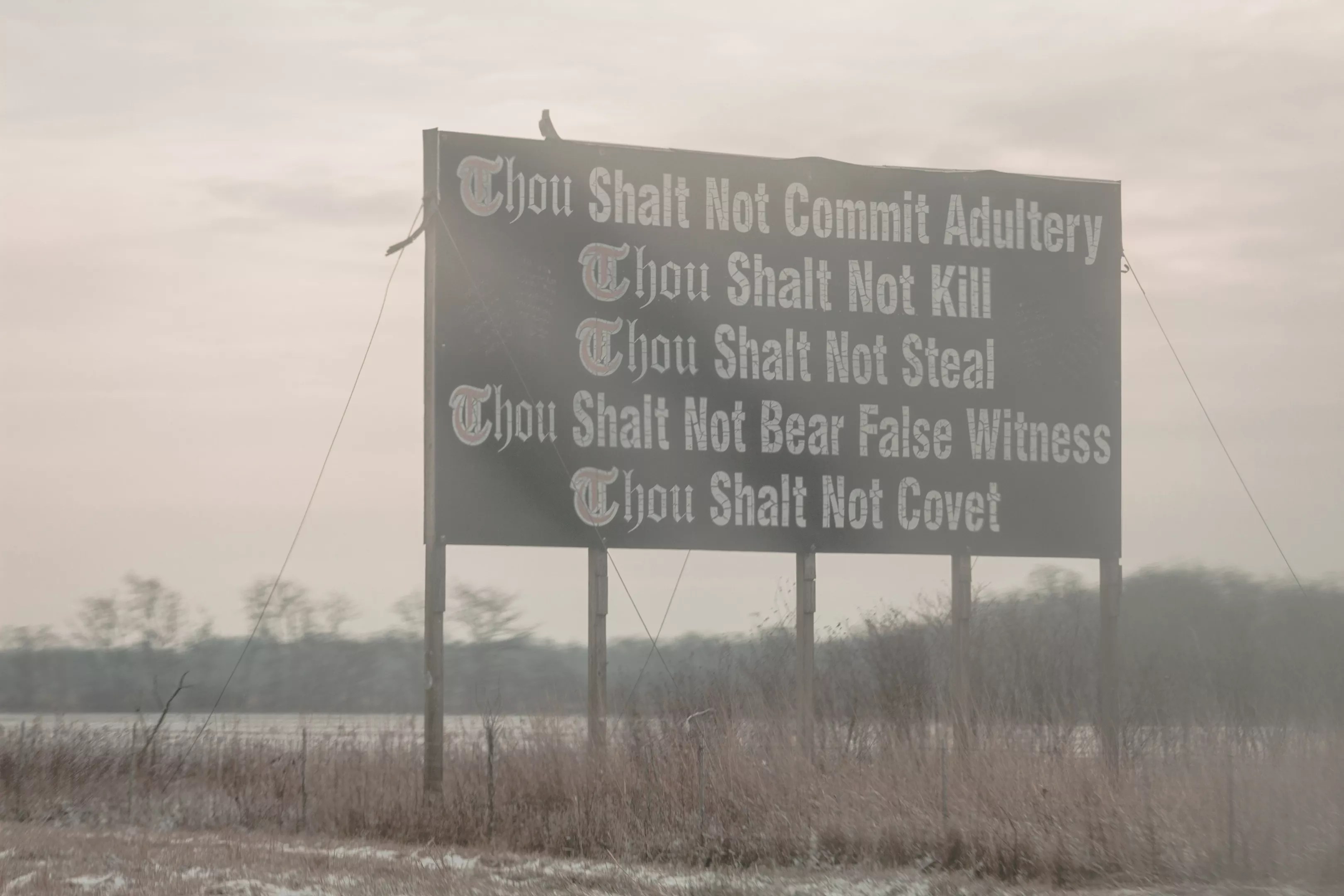
Sean Foster/Unsplash

Audio By Carbonatix
On Wednesday in Austin, the separation between church and state in Texas was blurred, at least for a little while, during the Senate Committee on Education hearing. Senate Bill 763, authored by Galveston Republican Sen. Mayes Middleton, and SB 1515, authored by Weatherford Republican Sen. Phil King, is a pair of the more blatant recent attempts by conservative lawmakers to shoehorn Christianity into public schools through the front office as well as inside of each classroom.
Middleton’s SB 763 aims to allow schools to hire chaplains to perform the duties of school counselors. Most alarmingly, the filing also specifies “a chaplain employed under this subsection is not required to be certified by the State Board for Educator Certification.” As of now, school counselors must complete a fairly extensive series of steps to becoming certified, including completing some graduate education, additional testing and classroom teaching experience.
SB 763 would allow schools to hire chaplains, who are clergy members affiliated with a secular institution, to skip all that.
“There are a lot of problems with that,” said Andrew L. Seidel, author and vice president of strategic communications for Americans United for Separation of Church and State, a national advocacy organization. Seidel said his group is tracking around 1,500 pieces of legislation across the country that might infringe upon the religious freedom of Americans.
“We allow chaplains in the military, for instance, because if you are a Christian, a Buddhist or a Jew serving in the U.S. military in a country like Saudi Arabia, it could be very difficult for you to find a house of worship,” Seidel said. “This is a very different deal. This bill is saying, ‘We are going to use the machinery of the state to impose religion on a captive audience of schoolchildren, and we’re not going to vet that person at all.'”
King’s SB 1515 kicks the notion of a captive audience up several notches. Should it become law, every public school classroom in Texas would be required to display a copy of the Ten Commandments “in a conspicuous place.” And not just any old copy, mind you. The bill clearly lays out that each classroom Ten Commandments be “a durable poster or framed copy.” And that’s not enough. Each sin-listing display must also “be at least 16 inches wide and 20 inches tall.”
Sravan Krishna, a Southlake resident, has been down this path with schools before. Last year, he was a part of a group that attempted to donate “In God We Trust” signs, one with rainbows and another written in Arabic, to the Carroll ISD. Citing the phrase’s status as the national motto, Texas schools have been displaying donated “In God We Trust” signs since 2021 when it became law to do so.
His donation was not accepted by the district, but the attempt gained national headlines. “This [SB 1515] is a play from the same playbook I saw last year,” Krishna said.
“It might be hard to find a series of rules that conflict with our Constitution more than the Ten Commandments.” – Andrew L. Seidel, Americans United for Separation of Church and State
“It’s very authoritarian,” Krishna says. “They [conservative lawmakers] complain about indoctrination, but putting the Ten Commandments in classrooms really is indoctrination.”
In separate conversations, both Seidel and Krishna cited the first of the Ten Commandments as particularly problematic when it comes to the individual freedoms of students and teachers.
“It might be hard to find a series of rules that conflict with our Constitution more than the Ten Commandments these legislators have chosen,” Seidel said. “‘I am the Lord thy God, thou shalt not have any gods before me.’ That directly conflicts with the principles on which the United States was founded. No law can tell an American to worship a God, let alone which God.”
Krishna singled out another commandment that might make for some awkward classroom moments.
“This would create conversations in the classroom that are unnecessary,” he said. “What about ‘Thou shall not commit adultery?’ Is a kindergarten teacher supposed to explain what adultery is when a 5-year-old asks what that means?”
When reached for comment, MIddleton’s chief of staff asked us to submit questions via email, but we did not receive a reply to those we submitted. King also did not reply to our request for comment.
The latest wave of headline-grabbing Republican lawmakers has not been shy about their distaste for separating church and state. U.S. Rep. Lauren Boebert of Colorado was quoted in July 2022 as saying that “the church is supposed to direct the government, the government is not supposed to direct the church,” before adding “I’m tired of this separation of church and state junk.”
Rhetoric like that and bills like SB 763 and SB 1515 represent more than a smearing of a line that should separate church and state, Seidel said. To him, these are all clear signals that Christian nationalism continues to rise in profile across the country and might make its way into many classrooms. He pointed specifically to the lawmakers behind these bills to suggest they feel threatened.
“Conservative, white, Christian, heterosexual men are seeing their status in our society begin to wane,” he said. “The deference they believe they are due is waning. They’re raging against the dying of their privilege.”